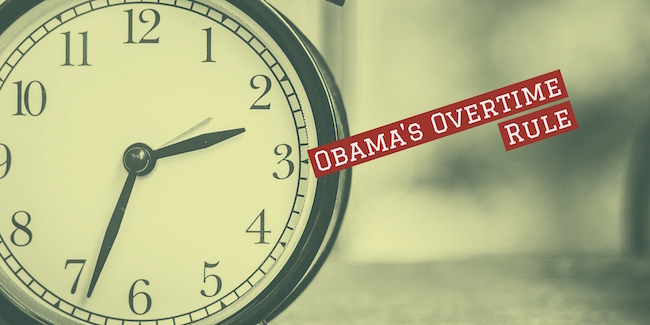Most of us aren’t crazy about working overtime – especially when we’re not being paid for it. President Obama’s new overtime rule will make some changes in the way workers are paid that may correct that problem for at least some workers.
However, the changes may be felt by more than just the workforce. If you are a small business owner, for instance, let’s look at how Obama’s new overtime rule could affect you.
Table of Contents
Toggle1 Pay Scales
As a small business owner, the current scale you use to pay your workers may need to be re-evaluated. Once the Overtime Rule takes effect, any salaried workers you have who are paid at least $23,660 annually will be paid overtime when they weren’t being compensated for it before. Unless you raise their salary to $47,476 per year. This means an overall salary increase one way or the other for your workers affected by the rule and an overall revamping of how you pay all of your workers in order to remain fair to them and within the law.
2 Job Duties
Some workers could be exempt from the rule based on the duties they perform in their jobs. Others may change from salaried to non-salaried which could affect moral and job performance because they may feel as though they are of less value and have been demoted. There is a Fair Labor Standards Act “duties test” which can help with reclassification of your employees. Overall, the job duties of your employees will need to be examined and possibly changed based on the new rule.
3 Number of Employees
If your small business can’t afford the changes imposed by the new laws going into effect, you might need to reduce the number of employees you have. Of course, that will in turn change the duties of your other employees and maybe yourself as well. Some positions may need to be eliminated altogether, which could mean job losses for some of the employees who currently work for you.
5 Financial Difficulties
It may be financially difficult to stay in compliance with the new overtime rule once it becomes effective. You may have to give a substantial salary increase to your salaried workers. Or give overtime pay for any hours over 40 in a week. If you have several employees whose pay will be affected by this, you could end up paying thousands more than you were before for the same tasks. That could prove difficult for some small business owners and in fact, sink their businesses altogether.
Amid all of this negativity, there is one recent victory for the small business owner, however. Recently, according to USA Today, a federal judge blocked the rule from going into effect on December 1, 2016. This could help small business owners who are struggling under the impacts the new rule imposes.
This is probably only a temporary setback for those in favor of the new overtime rule. However, it should allow a little breathing room for small businesses. Giving them some time to implement the needed changes the new rule imposes.













